February 2024


February 2024

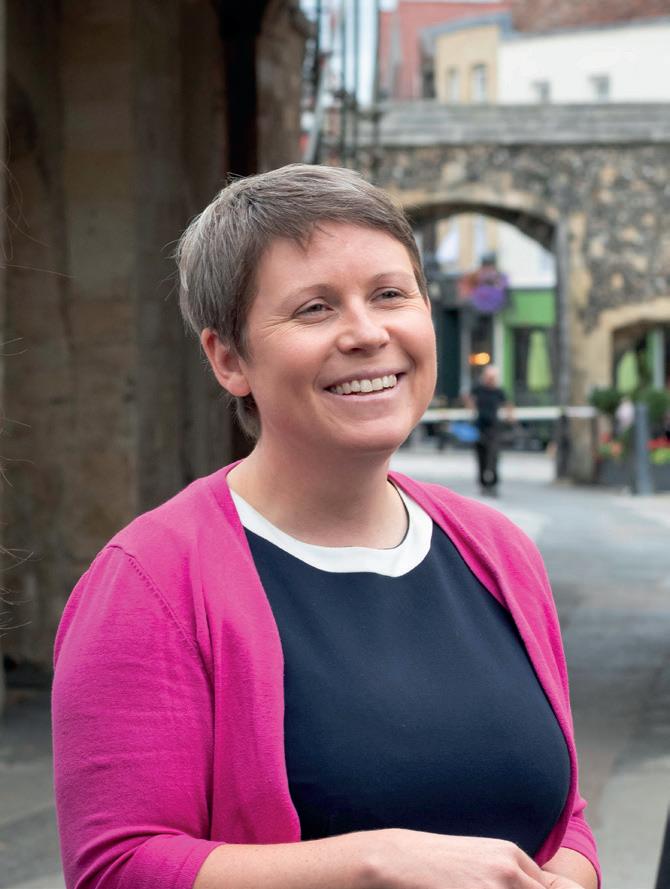
In February 2024, the King’s School Canterbury was inspected by the Independent Schools Inspectorate as part of their routine cycle of inspections. I am delighted to be able to share the report with you.
This latest inspection took place under the new framework which was introduced in September 2023. Gone are the old single word judgements, and there is now less space for inspectors to detail specific examples of activities or lessons worthy of particular praise in the more muted tone of the new reports. What they do deliver is a more nuanced assessment of a School’s overall performance and culture, as well as referencing key areas of compliance (with both the Independent School Standards and National Minimum Standards for Boarding). There is a real focus, rightly, on pupil experience and wellbeing.
As you would expect, the inspection is a very rigorous process. All pupils, parents and staff have the opportunity to contribute to a survey and a great many individuals and groups are also interviewed by the large inspection team. They had a chance to visit lessons, boarding houses and activities, spent time with our pupils over lunch and scrutinised examples of pupils’ work. I am very grateful to all pupils, parents and staff for the input into this process.
Given this rigour and the challenges of the new framework, we are delighted to present the highlights of the report in this booklet and to encourage parents to read the report in full on the school’s website.
The inspectors found that the school met each of the required standards and also identified many areas of excellence in our school. The strength of our culture, where each pupil is supported to pursue their interests, where all are helped to feel at home, and where there is a palpable sense of engagement and ambition was clear to the inspectors, who also report on the remarkably inclusive nature of our community.
I am enormously grateful to my colleagues for their hard work in creating the conditions for this culture to flourish, and to each pupil for the contribution that they make to our school.
While a positive inspection report is certainly something to be celebrated, we will not rest on our laurels, and will continue to build upon and sustain the strengths identified through ongoing reflection, feedback and improvement.
Yours sincerely,
Jude Lowson HeadLeaders, managers, and governors have created a culture of care, warmth, ambition, and collaboration. The
Christian ethos pervades all aspects of the school, while leaders and pupils celebrate all faiths, religions and beliefs.
Leaders exhibit the skills necessary to execute their duties professionally and compassionately.
Leaders regularly undertake surveys and listen carefully to the views of stakeholders.
Governors provide challenge and effective oversight.
Leaders take a diligent approach to the management of risk.
Leaders encourage each subject to have autonomy and develop their own identity, thus creating academic departments which deliver a bespoke and suitable curriculum with high expectations.
Pastoral leaders support pupils in their understanding of morality and spirituality.
Leaders promote a sophisticated and global understanding of life in society.
Safeguarding is effective and embedded in the culture of the school in all areas.
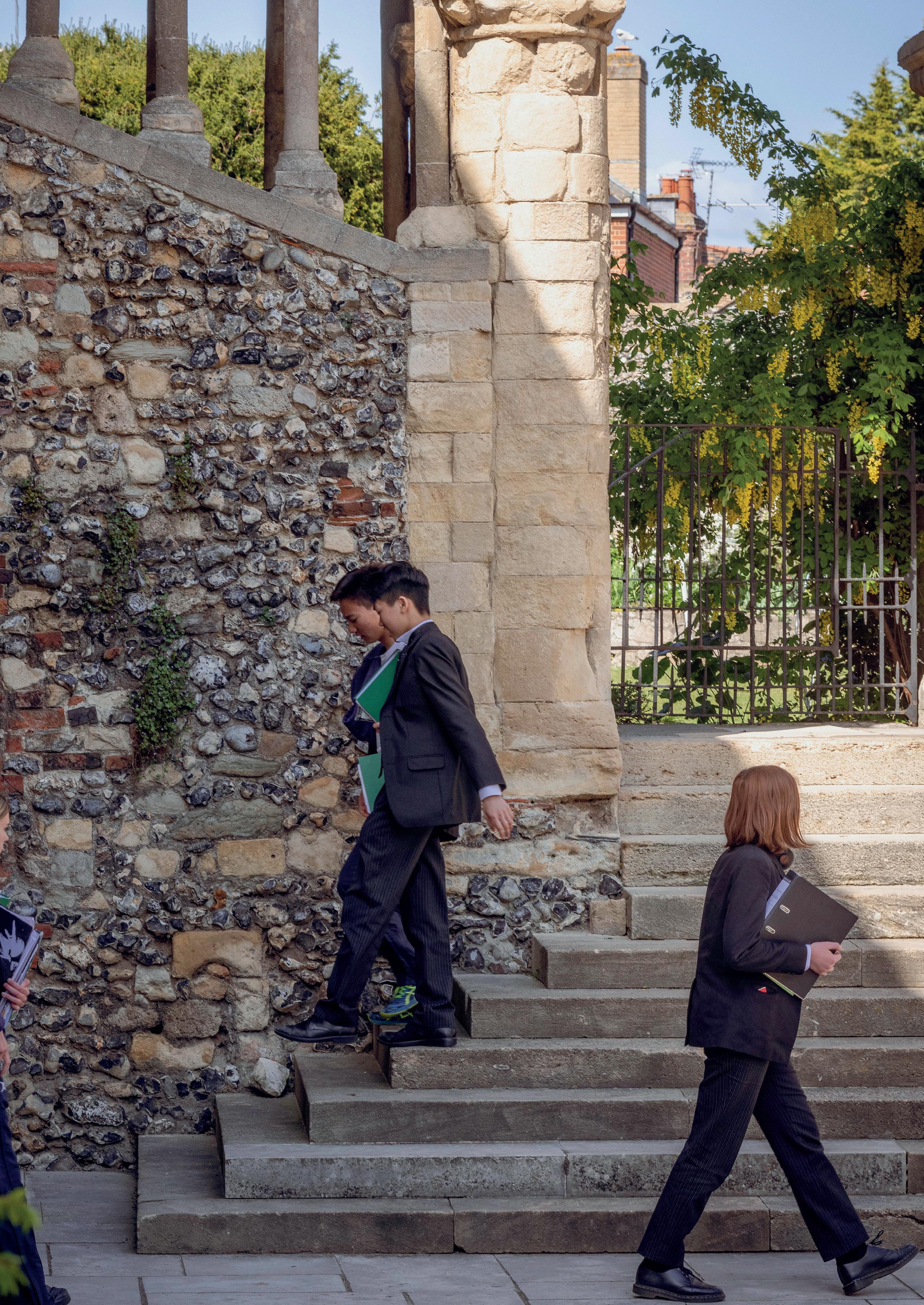
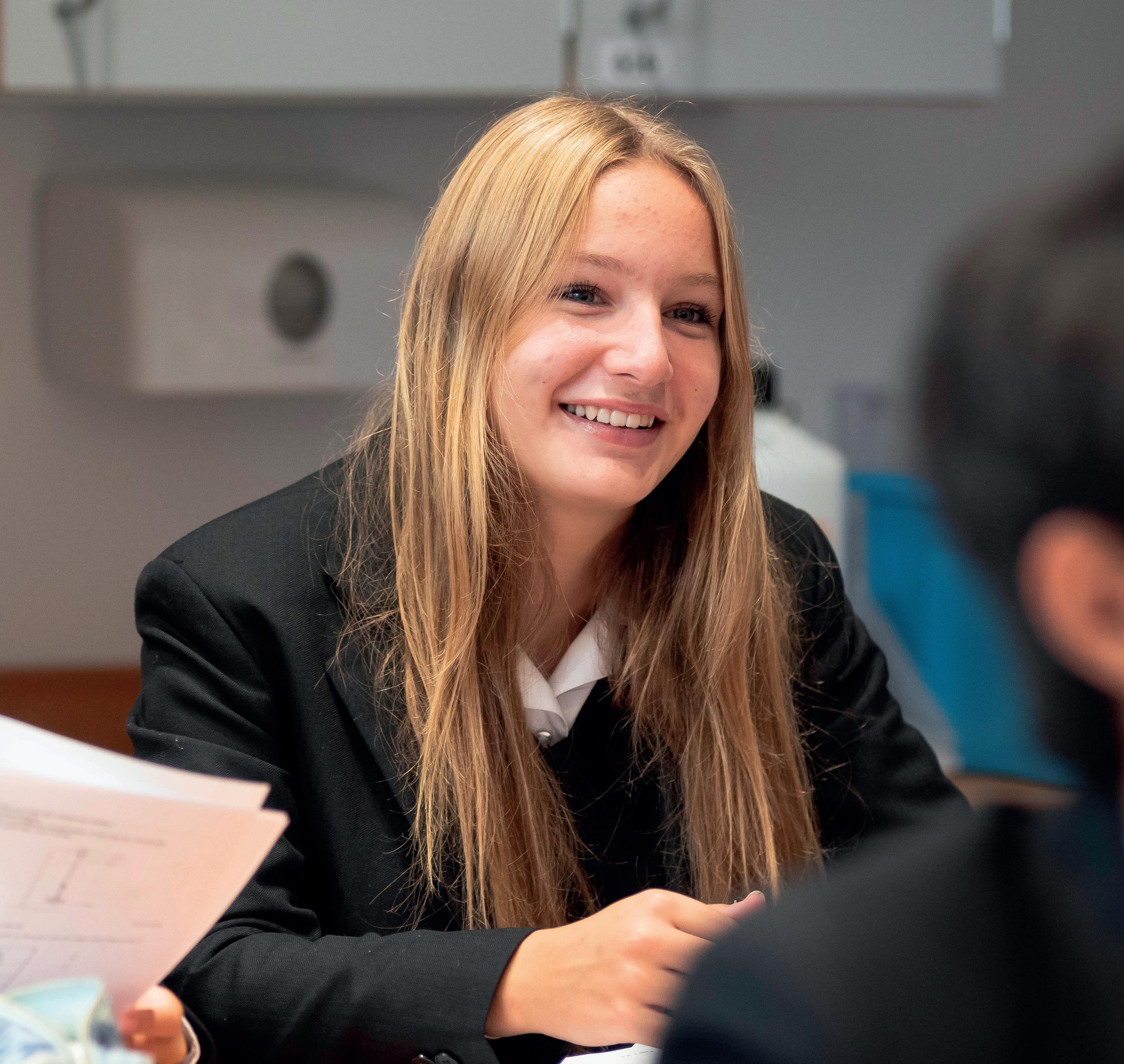
Pupils benefit from a broad and vibrant curriculum which emphasises character education and develops pupils’ skills, resilience, and self-awareness.
Pupils participate in a wide range of subjects and activities which develop intellectual, physical, and creative skills.
Pupils have positive attitudes to learning, and are selfmotivated. There is an emphasis placed on independent learning. Effective written and verbal feedback to pupils helps them understand how to improve their work.
Positive relationships between pupils and teachers underpin their learning.
The careers programme delivers impartial advice on matters of university applications. Visiting speakers enrich the programme and offer pupils an insight into life beyond their school.
The inclusive, and comprehensive curriculum emphasises the importance of the creative arts.
The school provides pupils with a wide-ranging extension programme that includes leadership opportunities and taking an EPQ.
Lessons are brought to life by using dynamic examples.
Support for pupils who have special educational needs and/or disabilities (SEND) is carefully planned, reviewed, and delivered with sensitivity and purpose. Pupils are supported with individual target setting and bespoke plans.
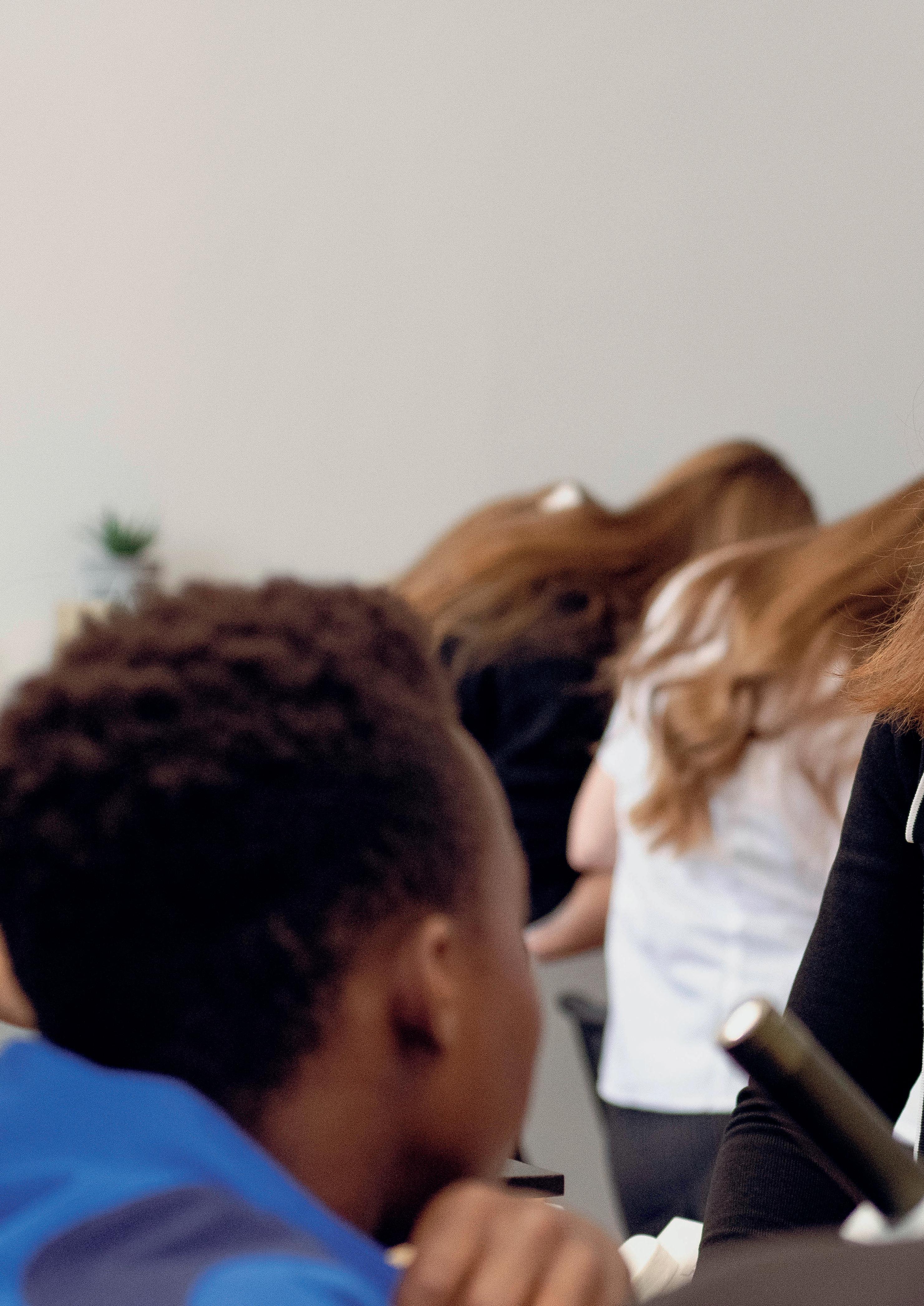
Teachers are skilled and possess a secure subject knowledge, and well-planned lessons support pupils’ progress and development of skills such as critical thinking and communication.
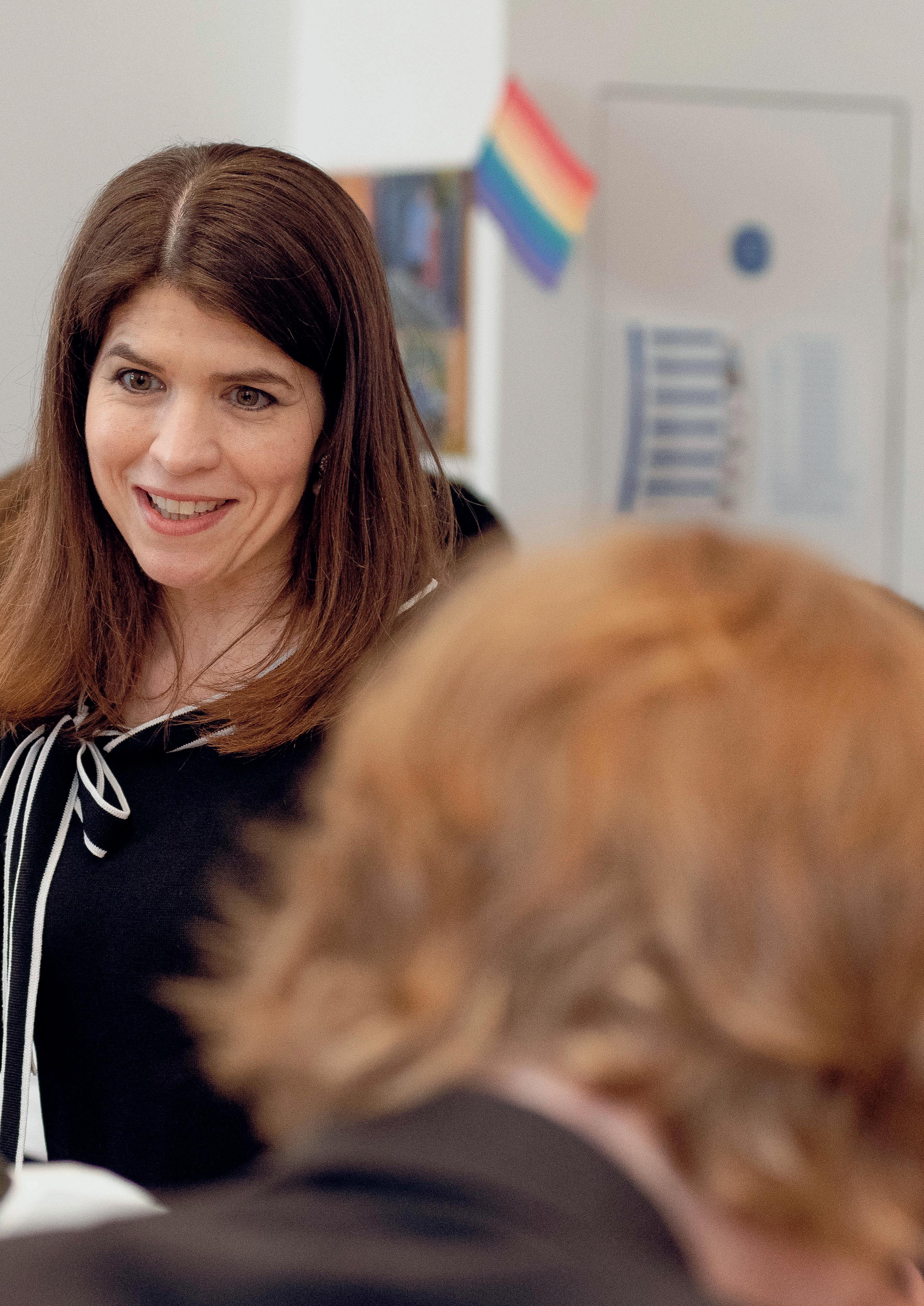
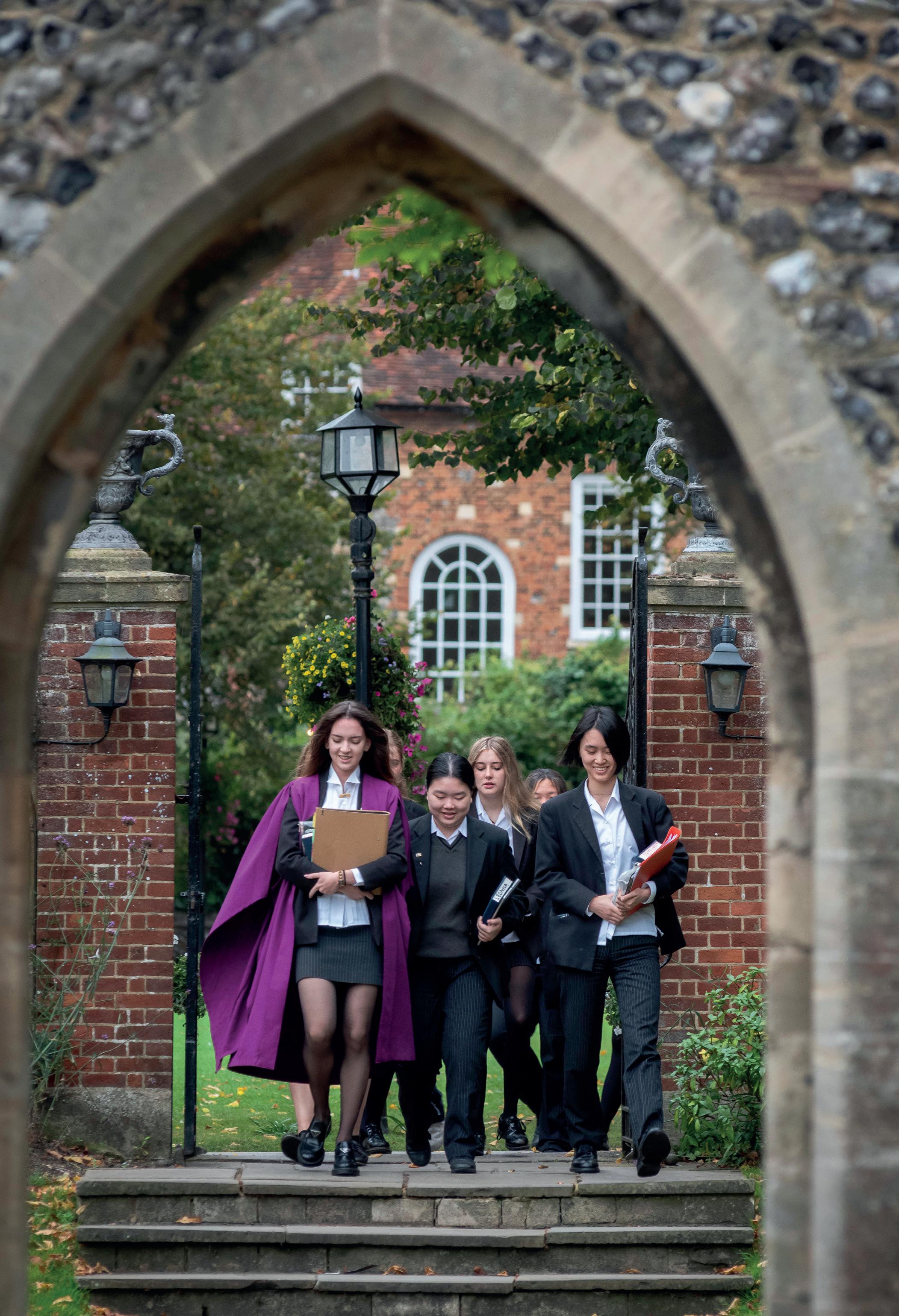
At the heart of the school is the house system, which caters for both day and boarding pupils.
Loyalty and pride are just two of the values that the ‘house spirit’ engenders, and pupils gain their ‘voice’ within this structure. This enables them to share their views openly and feel that it is safe to be different within this inclusive community. Pupils celebrate the principles of equality, diversity, and inclusion and demonstrate this in their everyday interactions with each other.
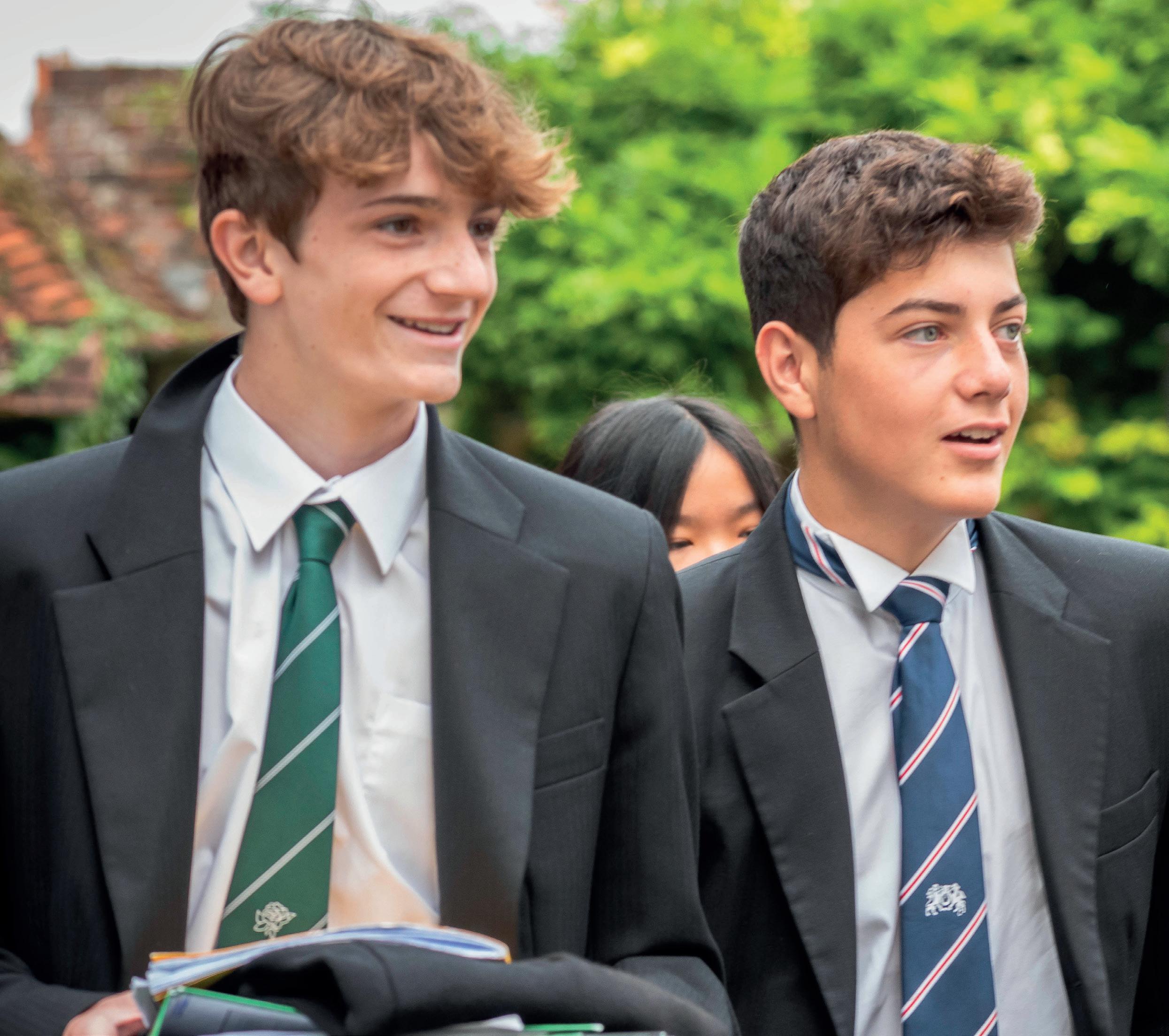
Boarders develop as mature and independent learners. The boarding experience enriches the pupils’ educational journey due to the supportive relationships between staff and pupils which creates a professional and warm environment.
Pupils are polite, courteous, and openly appreciative of the staff. Pupils are well behaved and respectful of their peers and staff.
Pupils are aware of the high standards that are set, and they strive to achieve them.
Pupils show respect for, and appreciation of, other cultures.
Through the charity committee pupils are provided with a platform through which to vote on charities to support, encouraging mutual respect through the democratic processes that take place.
Pupils act as positive role models and value the notion of being able to serve others. They are proud to be responsible and active members of their local community.
Pupils are confident to share their opinions, and views with the school. They feel listened to and valued.

Pupils of all abilities enrich their learning further through the comprehensive extra-curricular programme, and the additional programme of co-curricular clubs and societies. These include debating clubs, academic specialisms, sports and community opportunities. As a result, pupils are busy, energetic and collaborative learners.
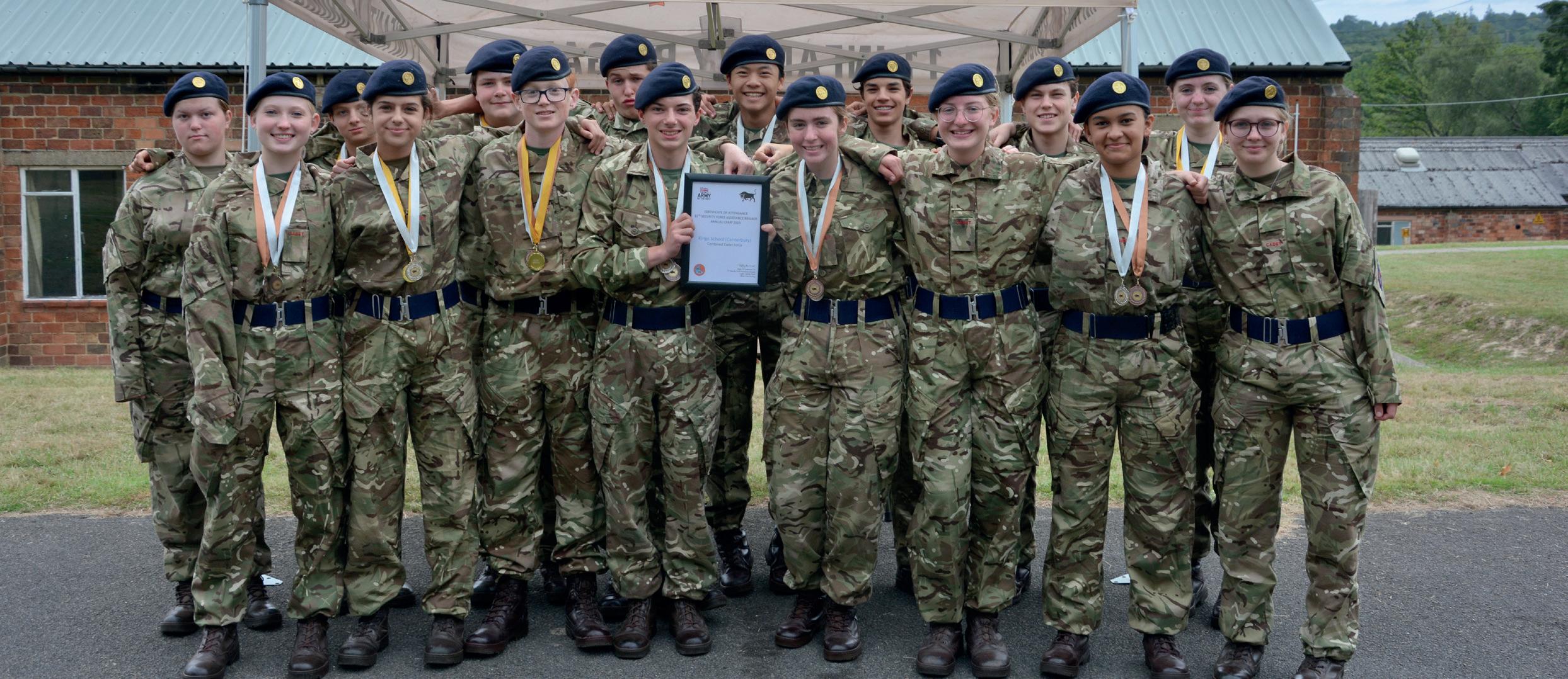
The school provides many opportunities for pupils to take on leadership roles, from house prefects to committee chairs, and they find that this extra responsibility develops and enhances essential social skills.
Pupils’ physical health develops through the substantial array of sports, activities, and outdoor programmes. Fixtures in a variety of sporting areas are frequent and carefully timetabled, and pupils compete in regional and national competitions. Sporting tours and excursions under The Duke of Edinburgh’s Award Scheme (DofE) and the Combined Cadet Force (CCF) are examples of how leaders enrich the experiences of the pupils. As a result, pupils across the school develop their interpersonal and teamwork skills.
Partnerships with schools and agencies serve to support pupils’ education about the wider world, and they develop selfawareness and confidence from such ventures.

Teaching in the International College has a positive impact upon pupils’ progress and builds confidence in pupils’ ability to grasp new concepts.
The culture established in the International College encourages pupils to voice their opinions, and to be respectful in all communications. This enriches their understanding of each other and the modern world. Pupils in the International College can articulate their ideas eloquently and with reasoning.
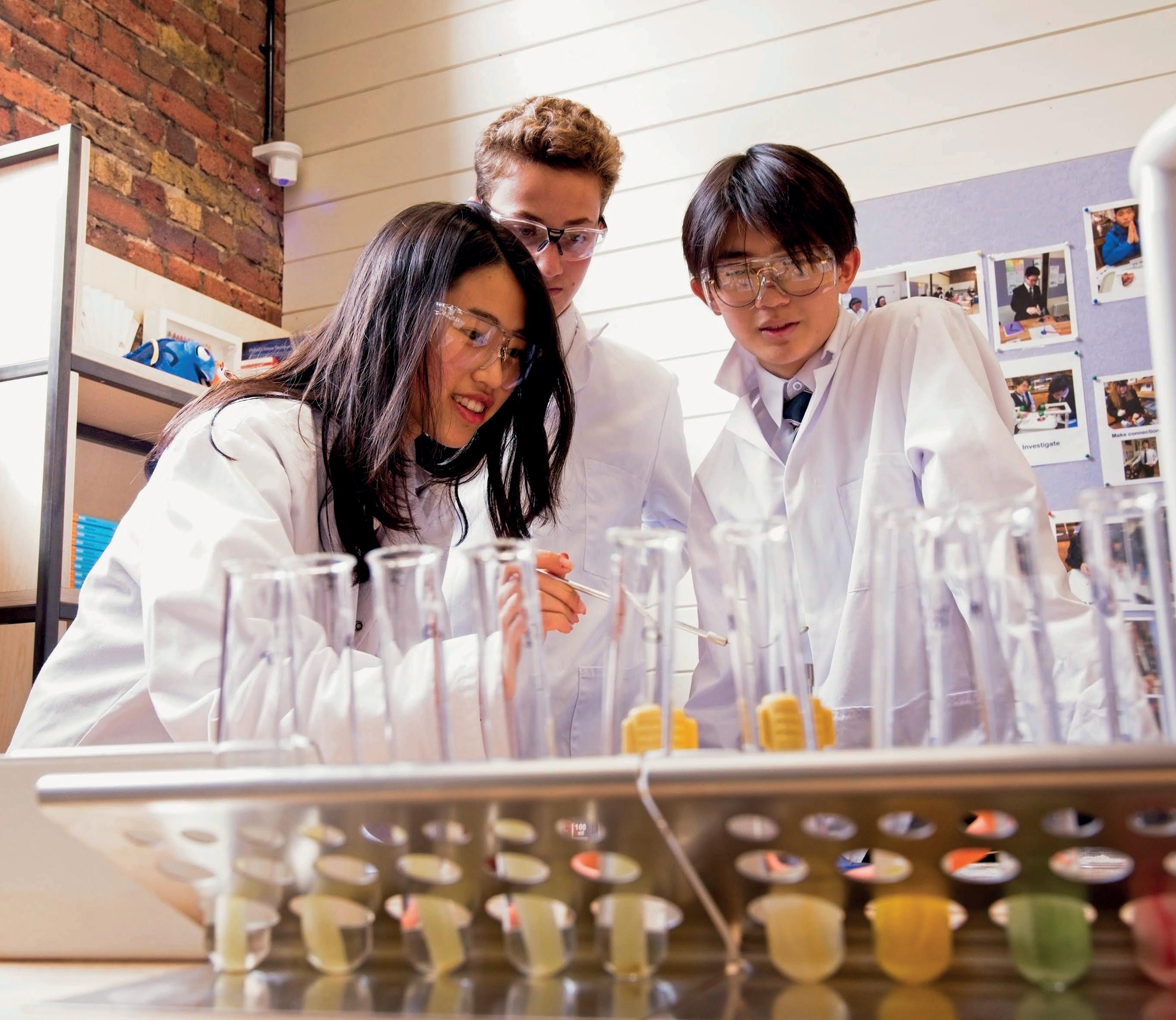

The nurturing approach from leaders encourages pupils to work without a fear of failure, while acclimatising to education in United Kingdom.